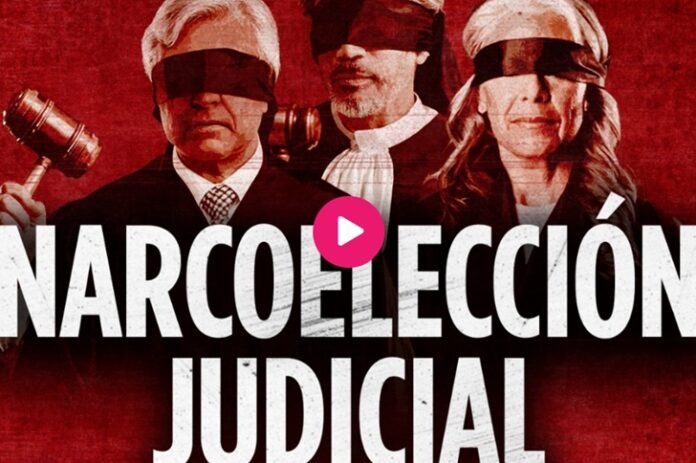The recent judicial election in Mexico has sparked widespread concern over the infiltration of organized crime into the country’s judiciary. The election, which is part of a broader reform aimed at strengthening the country’s justice system, has been marred by allegations of corruption and complicity with cartels.
According to reports, several candidates with ties to organized crime have been nominated for positions in the judiciary, including lawyers who have represented high-profile cartel leaders such as “El Chapo” Guzmán and Miguel Ángel Treviño Morales, also known as “Z-40.” These individuals are accused of having links to the Sinaloa Cartel and the Jalisco New Generation Cartel, respectively.
The situation has raised alarm bells in both Mexico and the United States, with many experts warning that the election could validate Mexico’s reputation as a narco-state. The US government has already designated several Mexican cartels as terrorist organizations, and the country’s justice system is seen as being compromised by corruption and complicity with organized crime.
The election has also been criticized for its lack of transparency and accountability, with many observers arguing that it represents an unprecedented opportunity for cartels to infiltrate the Mexican state. The president of the Senate’s Board of Directors, Gerardo Fernández Noroña, acknowledged that Congress and the Judicial Reform Evaluation Committee “missed” candidates with criminal records or ties to organized crime.
The situation has sparked widespread concern among civil society organizations, which have called for greater transparency and accountability in the election process. The letter signed by eight civil society organizations, including Defenders, Article 19, and Mexicans Against Corruption and Impunity, argues that “as a society, we cannot allow those facing serious accusations of corruption, violence, and complicity with organized crime to now attempt to assume primary responsibility for the administration of justice.”
The Mexican government has faced criticism over its handling of the election, with many observers arguing that it has failed to address the root causes of corruption and complicity with organized crime. The country’s president, Claudia Sheinbaum, has promised to take steps to strengthen the judiciary and prevent further infiltration by cartels.
However, the situation remains complex and delicate, with many experts warning that the election could have far-reaching consequences for Mexico’s justice system and its reputation as a narco-state. The US government has already expressed concerns over the situation, and it is likely that international pressure will continue to mount in the coming weeks and months.
In conclusion, the recent judicial election in Mexico has highlighted the country’s deep-seated problems with corruption and complicity with organized crime. While the Mexican government has promised to take steps to strengthen the judiciary, the situation remains complex and delicate, and it is unclear whether the country can overcome its reputation as a narco-state.
Source: Codigo Magenta




